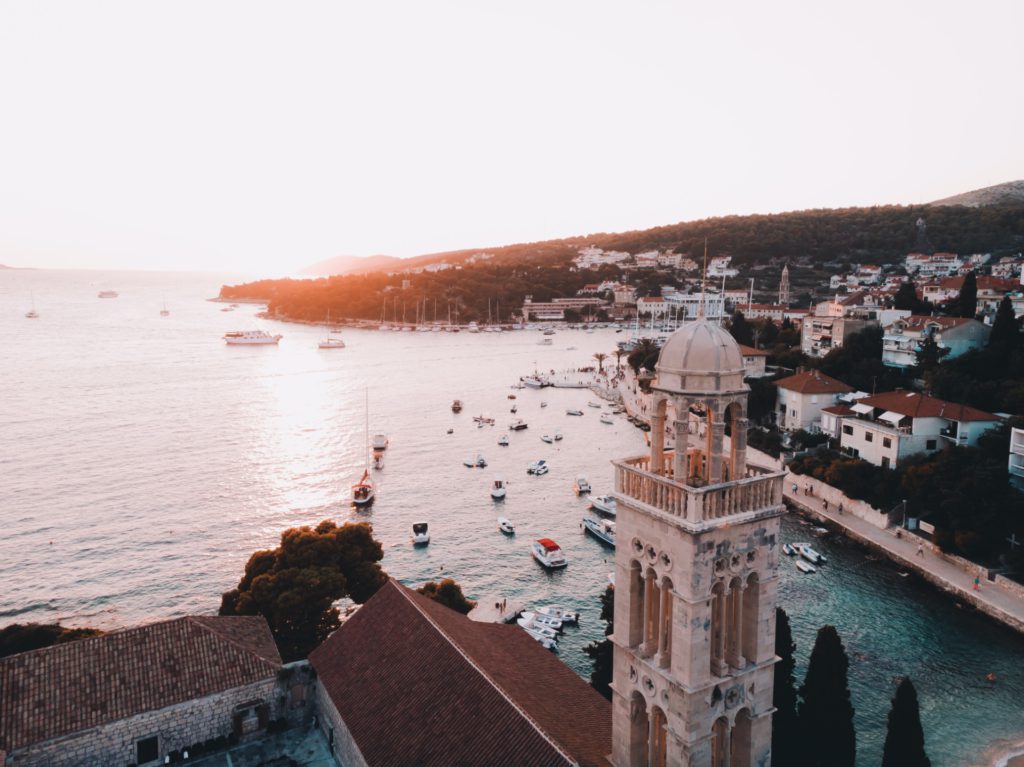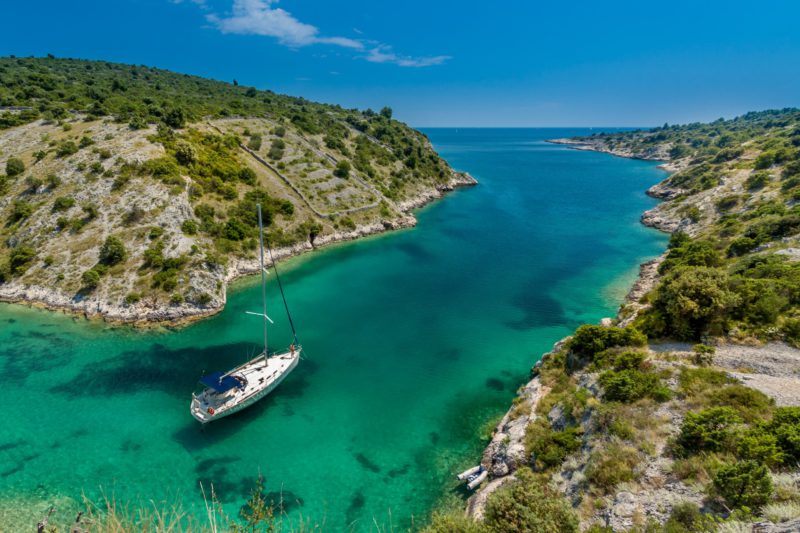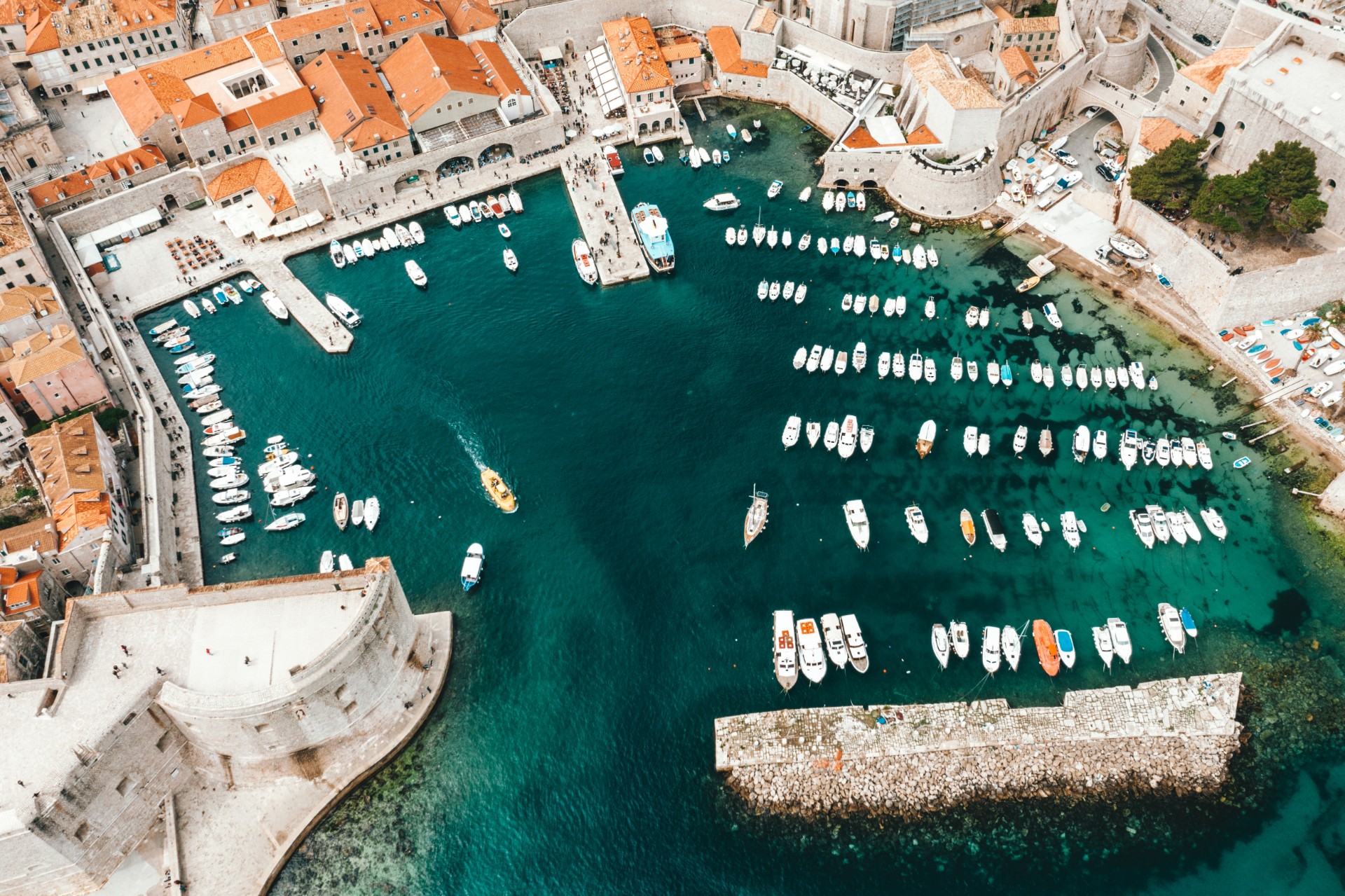⚠️ Update: November 11, 2021
Entry conditions for international travelers
Croatia is now open to anyone arriving from the EU and Schengen-associated countries regardless of nationality as long as they are able to present either:
(1) a valid EU Digital Covid Certificate, or
(2) proof of being fully vaccinated with an EU-approved vaccine, with inoculation completed within the last 270 days, or
(3) proof of recovery from COVID-19, as well as proof of at least one vaccine dose completed within eight months of contracting the disease, or
(4) a negative PCR test or a rapid antigen test recognized by the EU (taken within 72 or 48 hours respectively)
Entry for tourism is valid for other travelers as long as they are able to present proof of paid accommodation (in a hotel, campsite, private rental, or rented boat), in addition to the documentation above.
There are stricter measures for those arriving from countries deemed high-risk by the Croatian Institute of Public Health, including the need to quarantine. We recommend all travelers to check with Croatian authorities regarding high-risk countries and travel restrictions involved prior to planning a trip.
Domestic restrictions
– Face masks remain mandatory indoors as well as in outdoor spaces where social distancing is not possible
– Public gatherings and events are capped at 100 people
– Entertainment businesses and venues (such as bars and nightclubs) are subject to capacity and curfew rules
Many local attractions may not be operating at this time. Check official websites and with regional authorities for up-to-date travel advice. Refer here for more information.
The COVID-19 pandemic has changed travel forever. Many countries still have their borders closed to tourists and have ongoing protocols in place to curb the pandemic. Rules such as the mandatory wearing of masks have been put in place. Fortunately, travel is slowly beginning to regain traction, and countries have slowly begun to reopen their borders with certain conditions in place. Today, we seek to answer the question “Is it safe to travel to Croatia during the COVID-19 pandemic?” so you can make the right choices and feel comfortable on your trip.

From islands off the Adriatic Coast to incredible national parks, Croatia is truly the place to be! With its history dating back to the Roman and Greek empires, the country has become a popular hotspot. Feast your eyes on historical landmarks, dip your toes in crystal clear waters, and explore breathtaking natural landscapes. The popular TV series Game of Thrones has also put Croatia on the map as one of the must-visit destinations for fans; the city of Dubrovnik took center stage as a filming location for the fictional town, King’s Landing.
Croatia has opened its international borders to certain travelers. Read on to discover the answer to the question, is it safe to travel to Croatia?
What do I look out for before planning a trip to Croatia?
The Safe Travels Stamp by WTTC
Croatia has been awarded the Safe Travels Stamp by the World Travel and Tourism Council (WTTC), which recognizes their commitment to safety for all travelers. Look out for the stamp when planning your trips to make sure your destination is WTTC approved. Read more about the WTTC and the new Safe Travels protocols here.
Completing the EnterCroatia online form
All travelers are advised to complete the Enter Croatia form upon arrival. The form offers epidemiological guidelines and information on the measures that are currently in place for travelers to Croatia. At the moment, the form comes in 11 different languages for easy access. Travelers may access the form here.
Choosing your destination
It is important to stay up-to-date with news on the ground. We encourage travelers to check out this interactive map that highlights the number of community cases in each region of Croatia to make more informed travel decisions.
Beaches
Croatia offers some of the world’s most stunning beaches with its untouched coastline dotted with plenty of islands to swim, sunbathe, and explore. Head down south for some of the most alluring sunbathing havens that boast golden sands and perfect water sport conditions for the whole family. Some of the must-visit beaches include Copacabana Beach, located in Dubrovnik, and Gornja Vala Beach, one of the largest beaches on the Adriatic.
Apart from slapping on sunscreen to keep safe from the sun, here are some health and hygiene protocols to take note:
- The maximum number of people who can be on the beach at the same time is determined by the principle of 15 people per 100 square meters of space.
- Social distancing of 1.5 meters is required. This includes while swimming, relaxing on sunbeds, and the space between visitors and employees on the beach.
- Hand sanitization stations have been placed along the beach. Be sure to keep your hands clean!
- All beach clubs, restaurants, and food and drink establishments are required to follow health and sanitization guidelines to ensure patron safety.
Bars and Nightclubs
The adventures don’t stop when the sun goes down in Croatia. Split is best known for its vibrant nightlife and remains one of the best places to have a good time. Some of the most popular activities is a pub crawl through some of Split’s famed pubs for a taste of the wild Croatian nightlife. With its many nightclubs, music bars, beach clubs, and more, Split is definitely a must-visit for party animals!
In order to control the spread of COVID-19, all nightclubs in Croatia must close at midnight.
Museums
Museums in Croatia welcomed over five million visitors in 2019 with the Archaeological Museum of Istria taking the crown as the most popular choice. Located in the city Pula, this fascinating museum houses artifacts from eras including prehistoric, ancient, and medieval. Feast your eyes on the temple of Augustus, a well-preserved Roman temple dating back to 27 BC.
Feeling a little broken-hearted? Try the Museum of Broken Relationships, located in Zagreb. This tongue-in-cheek, bittersweet museum houses mementos from broken relationships submitted by love-lost individuals from around the world.
Here are some restrictions imposed by museums across Croatia to keep all visitors safe:
- The number of visitors must not exceed 15 per 100 square meters. Venues will not allow entry if this capacity is reached.
- Social distancing of 2 meters is required.
- Employees of the museum are required to wear a mask.
- Museums are routinely disinfected.
National Parks
Home to eight stunning national parks, Croatia is brimming with cascading waterfalls and sprawling green landscapes for you to enjoy. All eight of the national parks have since reopened with heightened hygiene practices and social distancing requirements. Most of these national parks are also offering promotional ticket prices to encourage more visitors.
Most national parks prohibit groups larger than five. Refer here to read more about each park’s individual requirements.
Know of more protocols that answer the question is it safe to travel to Croatia? Share them with us! Is Croatia on your travel bucket list? Check out our two-minute guide “Why travel to Croatia?” to discover the country’s best highlights.
About TourHero
TourHero is a social travel platform that enables you to travel with like-minded people and fall in love with the journey. We work closely with handpicked local operators to ensure every experience curated is unique and exclusive to your travel group. Come with us on epic adventures and create memories that last a lifetime!










